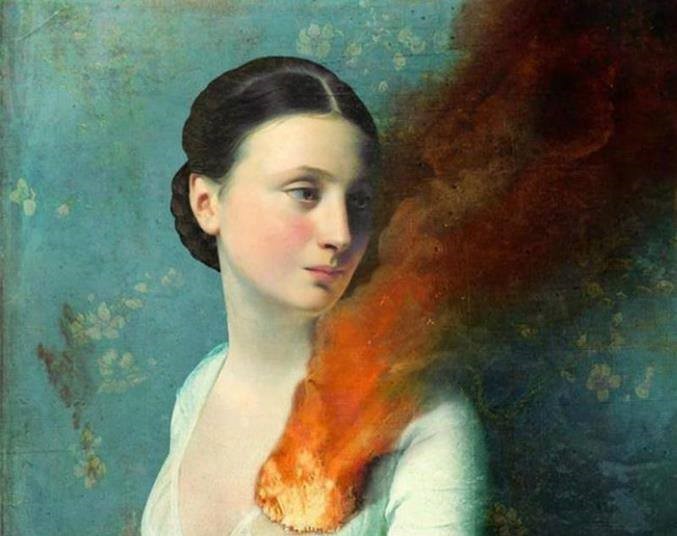
Question: I was thinking today about pain and how we experience it. It’s no secret that we experience pain to some degree or another all throughout our human lives. And when we suffer with disease it can seem unbearable. Is it only the body and the mind that experience this pain? Are we, the spirit soul within also feeling it or are we separate from this as with our actions and thoughts? I’m thinking that because pain receptors are in the nerves and controlled by the brain, that we are not feeling it as the self. But you know, I’m pretty daft [lol] so I could be completely off track.
And if it is that we are not directly impacted by this, how does one separate out from that? Because pain is a strong stimulus right, hard to ignore. Can this be surpassed by fixing the mind on Krishna and in this consciousness can we transcend it? Or is it that it is meant to be felt and endured? Something I heard once was that suffering from disease is related to our karma, but if it’s just this body that is feeling it, then how is that able to affect the atma?
Answer:
Yes, pain is unavoidable for an embodied soul, both emotional and physical pain. Birth, death, disease and old age, miseries caused by our own body and mind, miseries caused by other living entities, and miseries controlled by the demigods – natural disturbances such as heat, cold, floods, famines, earthquakes, tsunamis, droughts, bushfires, pandemics etc. etc.
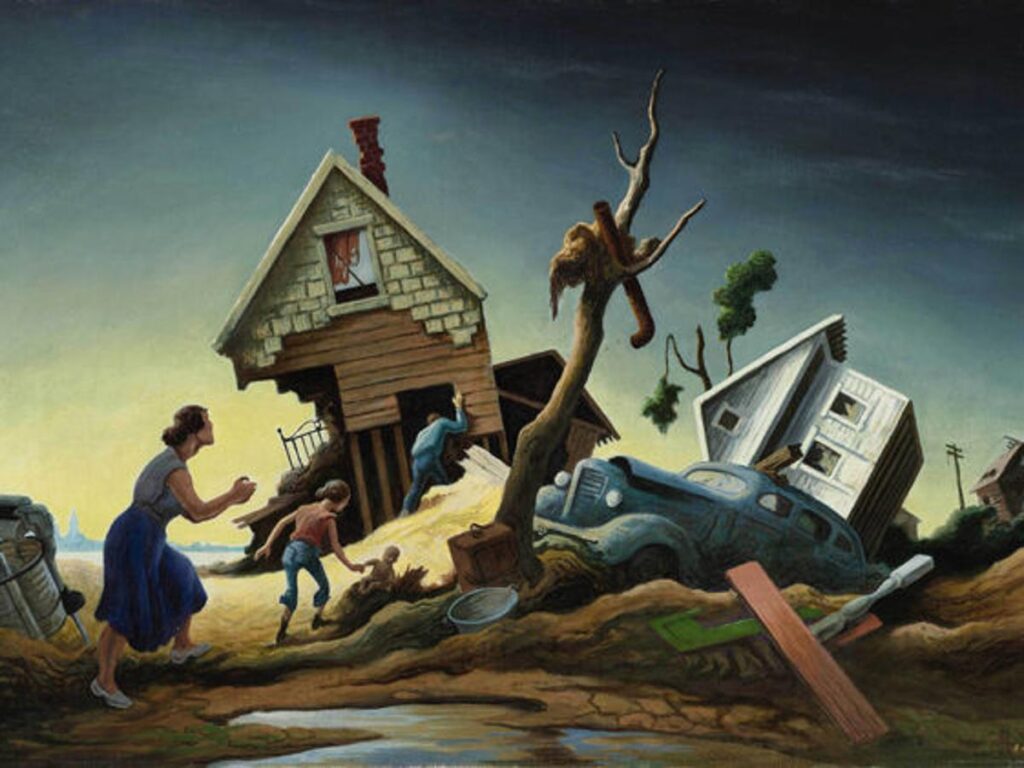
This is why Krishna says:
After attaining Me, the great souls, who are yogis in devotion, never return to this temporary world, which is full of miseries, because they have attained the highest perfection. From the highest planet in the material world down to the lowest, all are places of misery wherein repeated birth and death take place. But one who attains to My abode, O son of Kunti, never takes birth again.
[Bhagavad-gita 8:15-16]
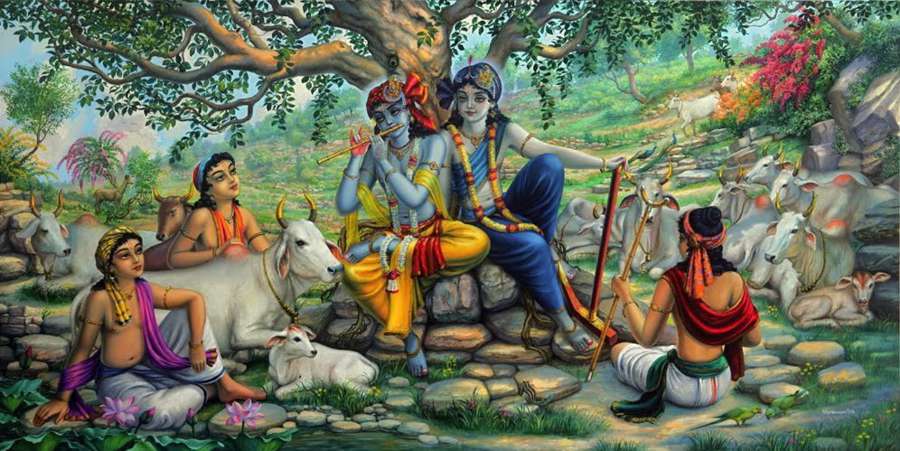
Some people ask: “Why does God allow His children to suffer?” It is because we are not meant to be comfortable away from Krishna. This is His mercy upon His wayward sons and daughters.The miseries of the material world are meant to wake us up to the fact that this world is not our home and we can never find a permanent comfortable resting place here. If we are intelligent, our suffering becomes the impetus for our seeking a solution to life’s problems. And that solution is nowhere to be found in the mundane philosophies and scientific advancements of the material world. The solutions to all of life’s problems descends from the transcendental realm via scripture, the wonderful enlightened acharyas, and from within via the Lord in the heart.
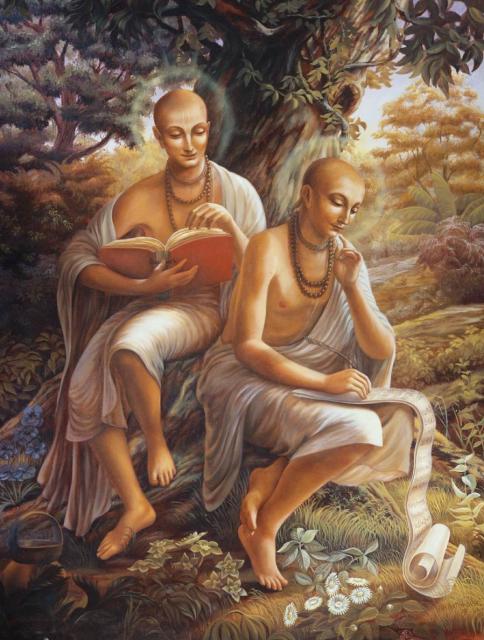
Sanatana Goswami and his brother Rupa Goswami were vastly learned brahmana scholars who were forced to take up the posts of treasurer and private secretary to the new Muslim ruler of Bengal, Alauddin Hussein Shah, who ruled from 1493–1519. They both became very wealthy in this capacity as government advisors, but managed to contact Lord Chaitanya and escaped from their enforced posts. They later became extremely renounced and greatly devoted followers of Lord Chaitanya. They were the authors of many books on the science of bhakti yoga – devotion to Lord Krishna. In the third chapter of The Teachings of Lord Chaitanya, Srila Bhaktivedanta Swami describes how on his first meeting with Lord Chaitanya, Sanatan inquired:
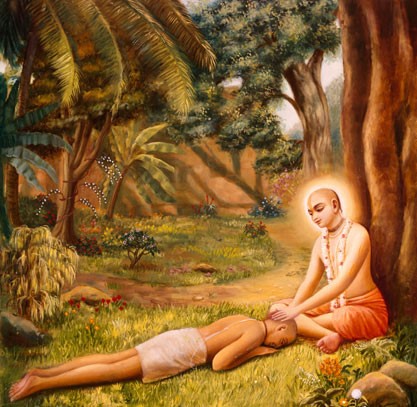
Who am I? Why are the threefold miseries always giving me trouble? And finally, tell me how I can be relieved from this material entanglement? I do not know how to question You about the advancement of spiritual life, but I beg that You kindly, mercifully, let me know everything that I need know.
Srila Bhaktivedanta Swami says in his book, The Journey of Self-Discovery:
This is intelligence. We are constantly undergoing some sort of distress, whether caused by the body and mind, inflicted by other living entities, or brought about by natural disturbances. We don’t want all these miseries, but they are forced upon us … So we should be intelligent enough to ask, “Why am I suffering? And how can I stop this suffering?” And until we ask “Why am I suffering?” our human life has not begun.
[The Journey of Self-Discovery, Chapter 1]
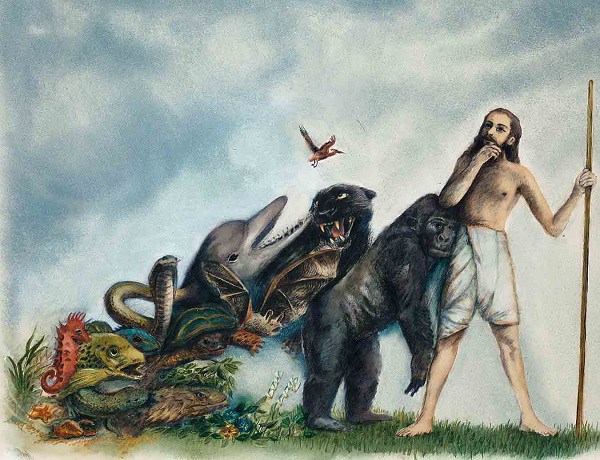
The first aphorism of Vedanta Sutras is: athato brahma-jijnasa:
One should now inquire about Brahman, or the Transcendence.
The purport of this verse is that when one attains the human form of life, he or she should inquire about the purpose of life. Animals and other lower species suffer without being able to question “why is this happening, and is there a solution to life’s problems?” This aptitude for inquiring, for searching for a solution to life’s problems – in particular, birth, disease, old age and death – is what separates human beings from the lower species. In all the years I have been giving and attending Vedic philosophy classes, I’ve never had a dog or cat attend, let alone ask relevant questions. Without the pain and suffering of the material world – both physical pain and emotional pain, including loneliness and emptiness – the spirit souls who are covered by the illusory energy might never seek to return to the spiritual world.

Yes, all material suffering and enjoyment is due to our karma – we cause it ourself. We are reaping the results of the fruit we have sown. We suffer in exact proportion to the suffering we cause others. When we identify with the material body and act in material consciousness, this is called “fruitive activity,” and such activity binds us to the law of karma. This is all experienced by the material body and mind, not by the soul. The soul is not actually affected by the pains and pleasures of the material mind and senses. But because we are still identifying ourselves with the body and mind, we experience pain as if it were us. But this is an illusion.
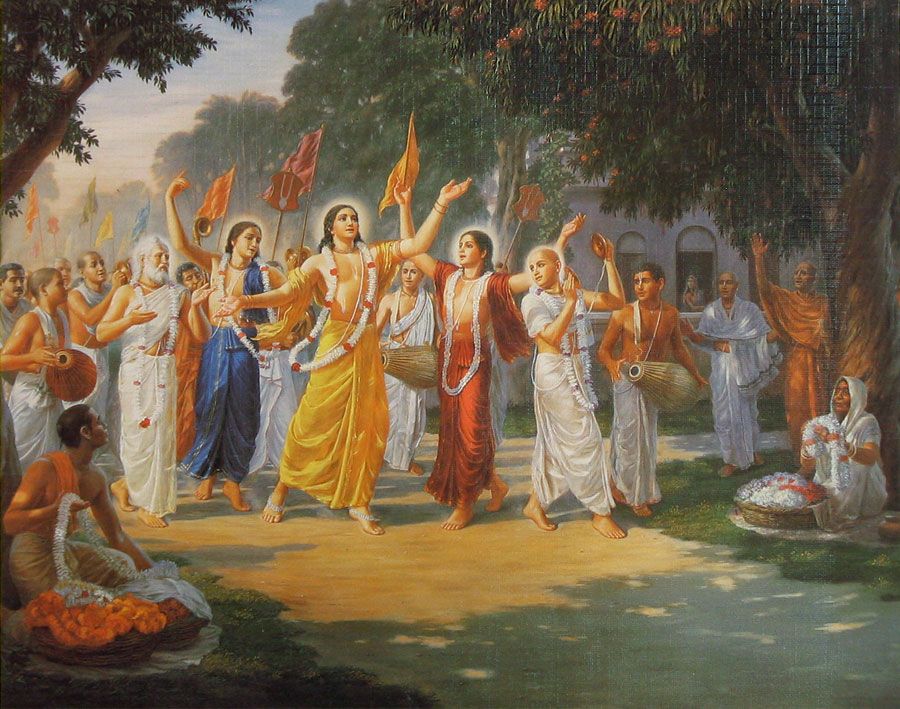
For the materially conditioned person, it is as if the soul is asleep. Srila Bhaktivinoda Thakur says in one of his songs [Jiva Jago]:
Wake up sleeping souls! wake up sleeping souls!
How long must you sleep in the lap of the witch called maya?
The activities of the conditioned soul are therefore likened to dreams. A dream may seem very real – we may think we are being eaten by a tiger, but when we wake up it is a great relief – “Phew, I thought that was real, but it was only a dream.” For those of us who have the great fortune to come under the care of a bona fide spiritual master, our spiritual activities constitute a gradual waking up from this sleep of maya. A pure devotee is fully awake – he has no more illusion.
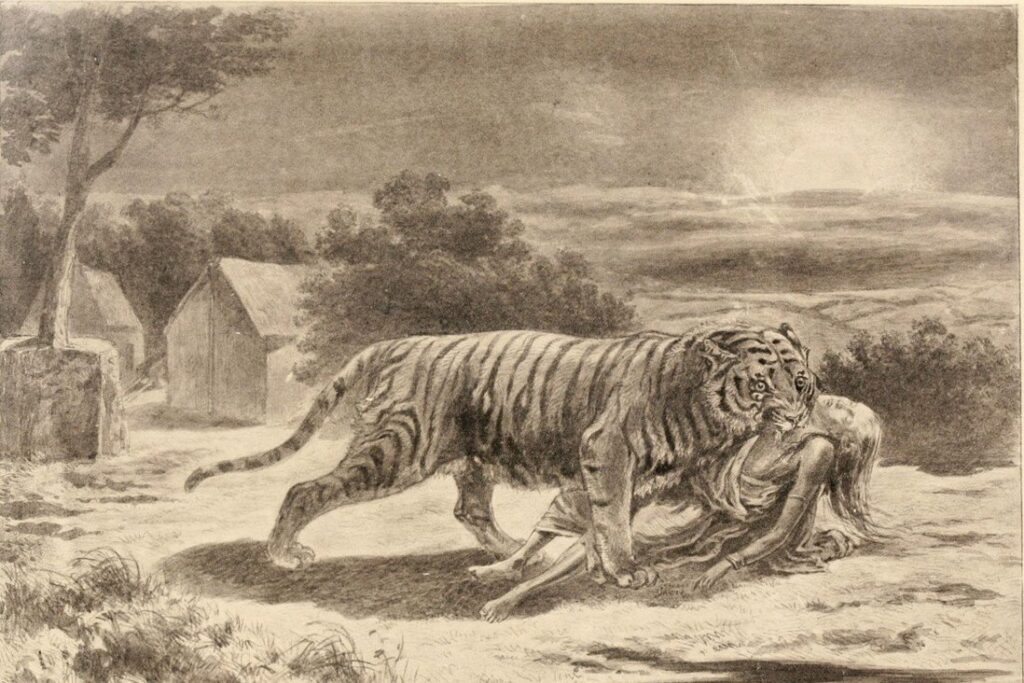
This does not mean that the pure devotee is free from the pain of the material body. Though he or she does not identify with the body and mind, they still experience pain and pleasure of the senses. If a devotee touches fire, he feels his finger burning – it would be very dangerous otherwise – but a pure devotee is always in a state of spiritual blissfulness in his loving relationship with Krishna despite the pain and pleasure of the body. Krishnadas Kaviraj Goswami, the great devotee and author of the Caitanya-caritamrta wrote this most wonderful work when he was about ninety years old.
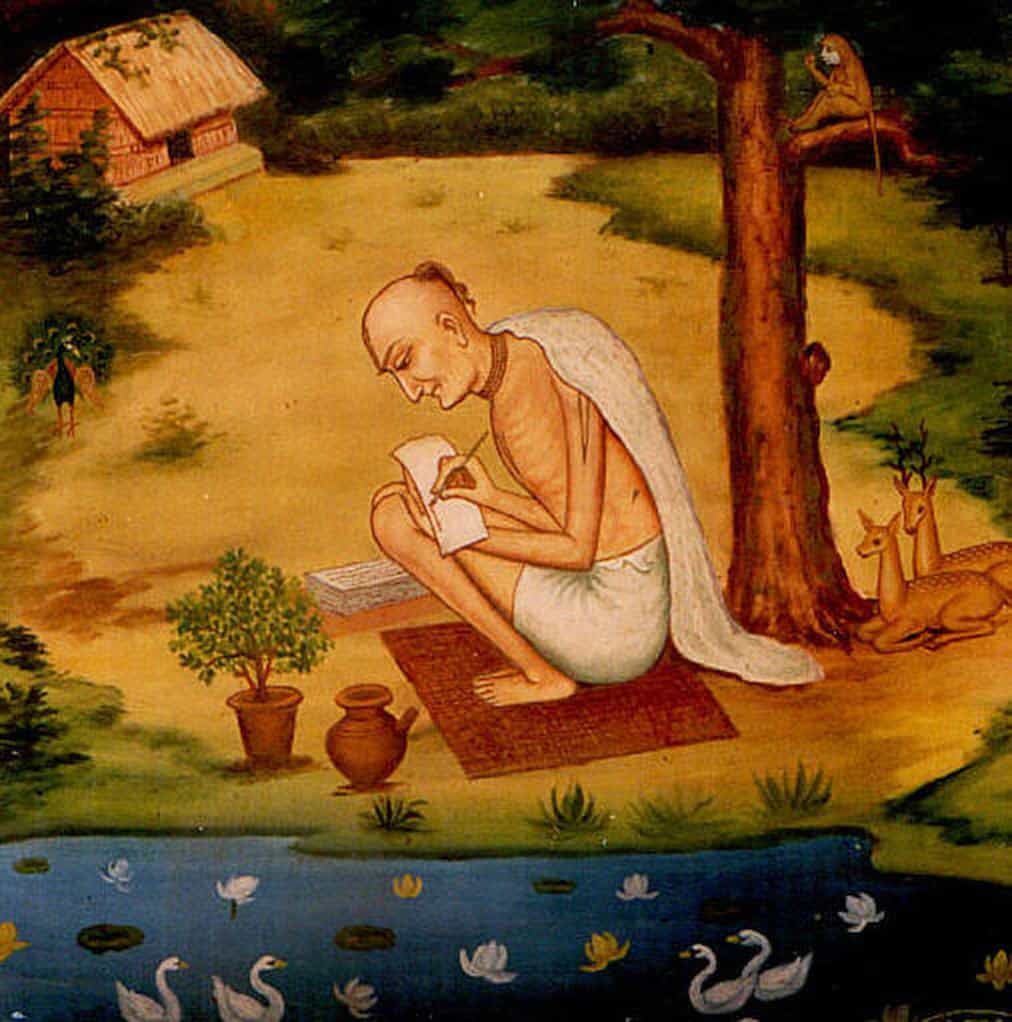
Srila Bhaktisiddhanta Sarasvati said of Caitanya-caritamrta:
If it were to happen that all the books in the world were destroyed, leaving only Srimad Bhagavatam and Caitanya-caritamrita, then the people of this world would still be able to achieve the ultimate goal in life. Even if the Srimad Bhagavatam were lost, leaving only the Caitanya-caritamrita, there would be no loss to humanity, for that which has not been revealed in the Bhagavat is found in Caitanya-caritamrta. The Supreme Absolute Truth is Sri Chaitanya Mahaprabhu, the combined form of Radha and Krishna. The Caitanya-caritamrita is His sound incarnation. The divine mystery of Radharani’s divine status and glories are found therein. Can there be any doubt, therefore, of the supreme status of this piece of transcendental literature?
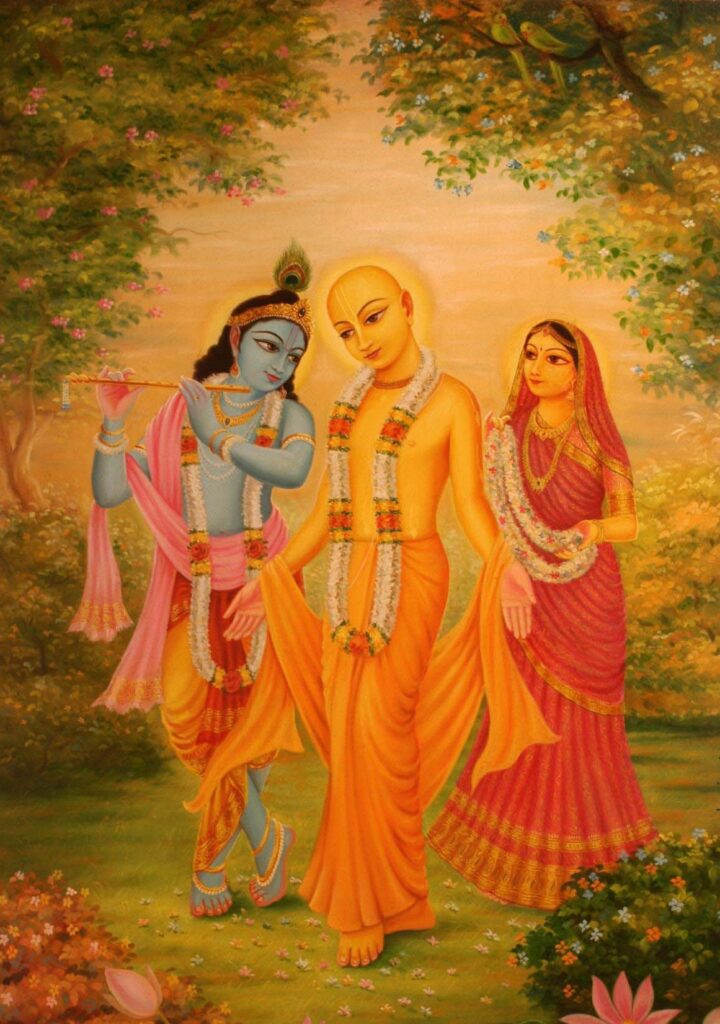
The Caitanya-caritamrta consists of 11,519 verses. Of these, 851 were quoted from other Vaisnava literatures like Bhagavad-gita, Srimad Bhagavatam and Krishna-karnamrta by Bilvamangala Thakur, as well as many of the books of the six goswamis – Rupa and Sanatan etc. Some of these verses from other scriptures were written in sanskrit, but the remainder, were written by Krishnadas in, I am told, the most beautiful rhyming Bengali poetry. The name Kaviraj, given to Krishnadas by Srila Jiva Goswami, means “the king of poets.” Yet at the time of writing Caitanya-caritamrta, Krishna das’ health was extremely poor, and he was in a lot of pain and discomfort from arthritis and other disorders. When he describes his body as being like a wooden doll below, he means that he has been a puppet, as he has elsewhere described that the book was dictated to him by Madana Mohana, one of the three principal Deities of the main Vrindavan temples:
I infer that “I have written” is a false understanding, for my body is like a wooden doll. I am old and troubled by invalidity. I am almost blind and deaf, my hands tremble, and my mind and intelligence are unsteady. I am infected with so many diseases that I can neither properly walk nor properly sit. Indeed, I am always exhausted by five kinds of diseases. I may die at any time of the day or night. I have previously given an account of my inabilities. Please hear the reason why I nevertheless still write. I am writing this book by the mercy of the lotus feet of Sri Govindadeva, Sri Caitanya Mahaprabhu, Lord Nityananda, Advaita Acarya, other devotees and the readers of this book, as well as Svarupa Damodara Gosvami, Sri Rupa Gosvami, Sri Sanatana Gosvami, Sri Raghunatha dasa Gosvami, who is my spiritual master, and Sri Jiva Gosvami. I have also been specifically favored by another Supreme Personality.
[Antya lila Chapter 20 verses 92-98]
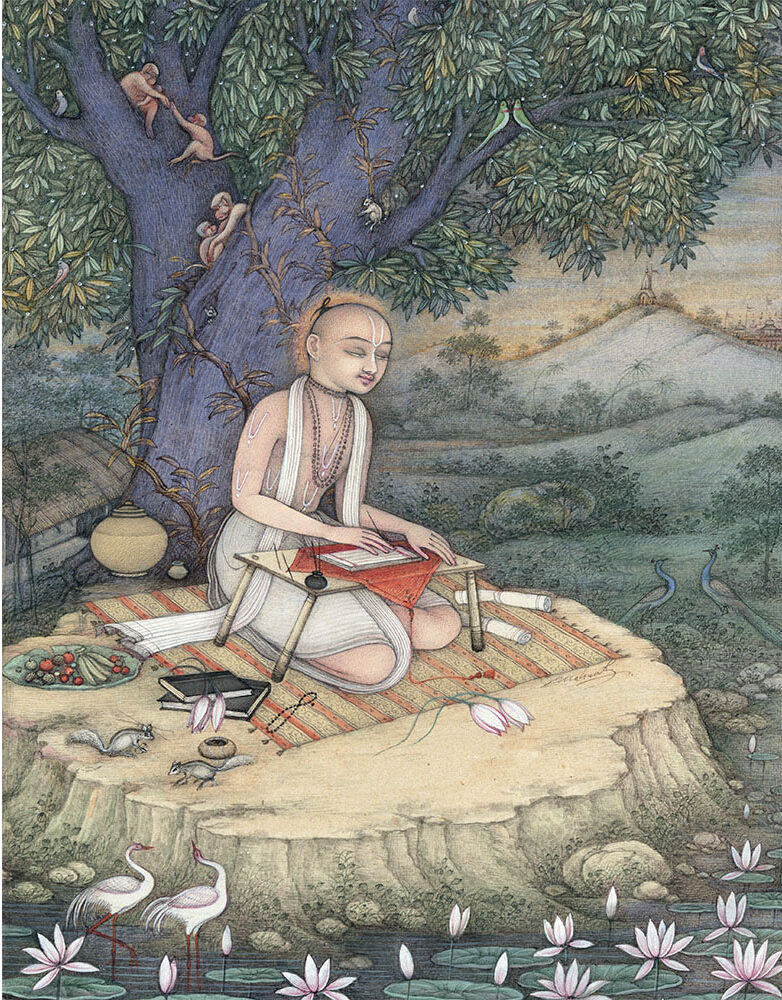
There is a very nice story about how Krishnadas came to write the Caitanya-caritamrta. After Lord Chaitanya had left this world, Vrindavan das wrote the Chaitanya Bhagavat about Lord Chaitanya’s pastimes. But Vrindavan das put more focus on the Lord’s childhood pastimes, and only briefly summarized many of Mahaprabhu’s later pastimes. The Vrindavan Devotees approached Krishnadas Kaviraj, asking him to write down a full version of these pastimes, for if it were not done, they would be forgotten.
Krishnadas then went to the Deity of Madana Mohana and asked Him for permission to do as he had been asked. In front of all the prominent contemporary members of the Gaudiya community in Vrindavan, the garland fell from Madana Mohana’s neck. This was taken by all who were present as a sign of the Lord’s approval and they let out a joyous cheer. Madana Mohana’s pujari picked up the garland and placed it on Krishnadas’s chest. Joyfully taking the garland as a symbol of the Deity’s wishes, Krishnadas began to write his biography of the Lord. Thus he has written in great humility.
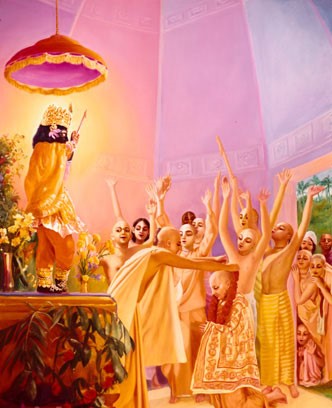
Srila Krishnadas Kaviraj had vast knowledge of all Vedic scriptures. His books show his skill in the Srutis, Smrtis, Nyaya, Jyotir shastra, and the culinary arts. Although he was an erudite scholar, a strict ascetic, a paramahamsa rasika Vaisnava, Krishnadas, being very humble, writes about himself:
I am deaf, dumb, wholly illiterate, worldly-minded, and lower than a worm in stool.
One may ask, “If material pain is due to karma, why does a great devotee get sick – is he not free from karma?” And yes, this is a fact, the pure devotee is free from karma because he only acts for Krishna’s pleasure, not to enjoy the fruits of his actions. However, out of great compassion, the devotee will sometimes take on the karma of others, to help bring them closer to Krishna. For instance, after initiation, if a disciple continues to engage in sinful activities, the spiritual master will sometimes take the suffering, the karma, onto himself. This is why a spiritual master will often experience poor health despite living very austerely, controlling the senses, eating well etc.
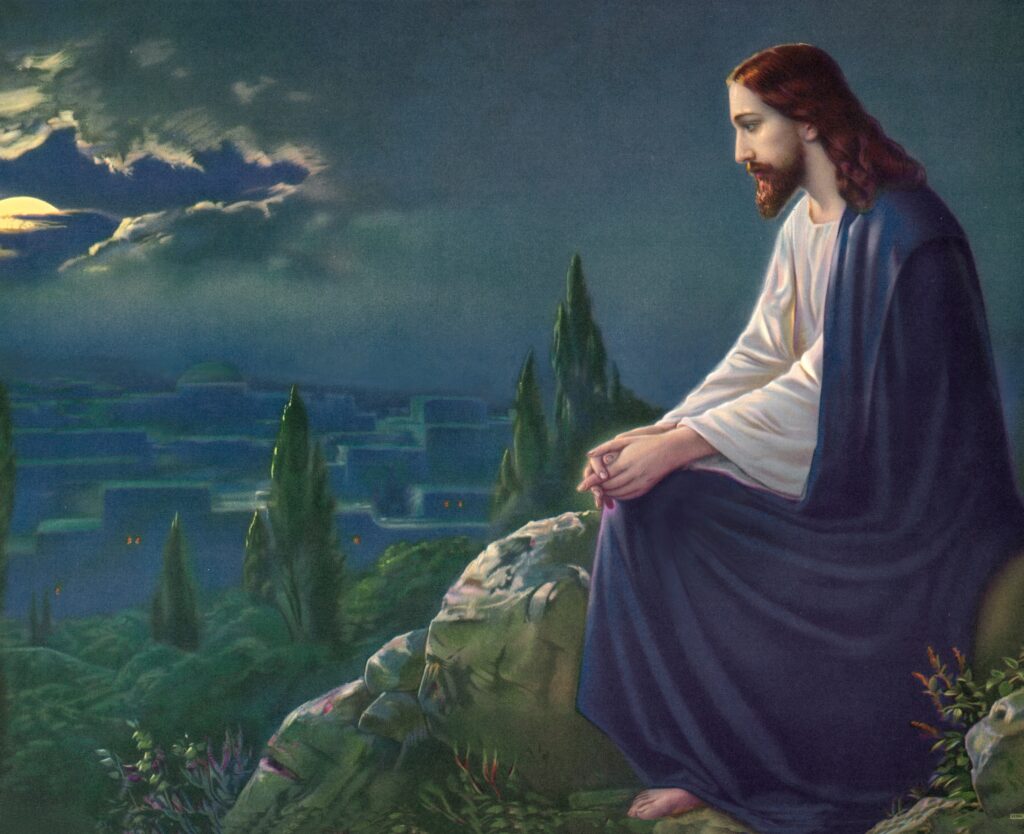
The spiritual master will only experience a token amount compared to what the recipient of his compassion would have experienced, but if there are many disciples, this can add up to bouts of severe illness. And when a sinful disciple sees his spiritual master suffering, if he is sincere he will experience shame and remorse that he has caused his spiritual master to suffer. This is the reason why Lord Jesus Christ voluntarily suffered on the cross. He truly did suffer for the sins of others. But this should be seen as a terrible thing, not something to be rejoiced in – “Oh this is so wonderful, Jesus is suffering for my sins so I can go on enjoying the material world.” This is not the attitude of a real disciple.
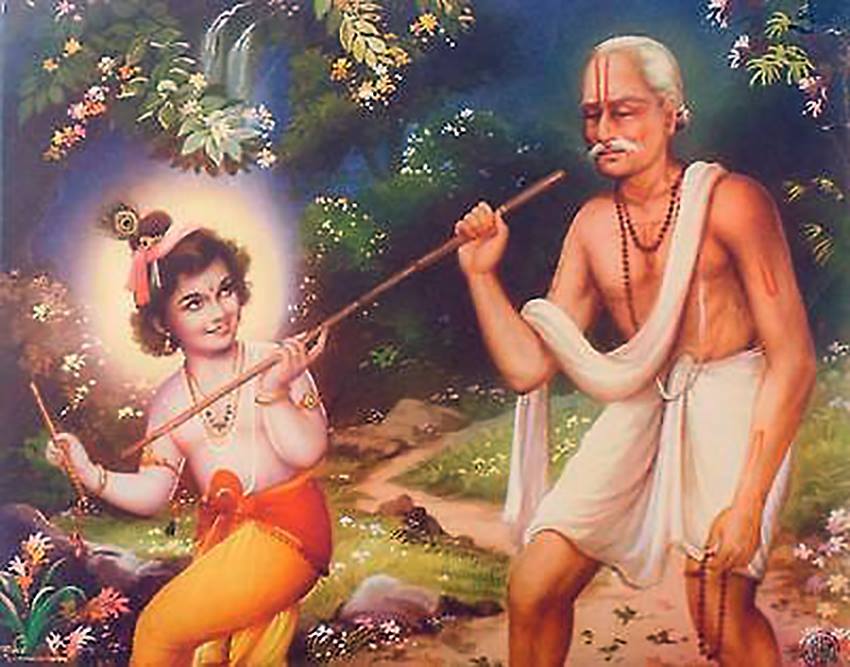
When a devotee suffers, he feels “Due to my past sinful activities, I deserve far worse than what I am suffering now, but Krishna has kindly minimized my suffering.” And this is a fact. Although Bilvamangala Thakur was physically blind, through his perfect devotion, Krishna would come daily to visit him. One day, Bilvamangala was blessed with the divine vision to see Lord Krishna standing before him. The Lord urged Bilvamangala to ask for a boon. With all humility, Bilvamangala prayed that his blindness to the external world should continue, while his vision and devotion of the Supreme Lord would continue unceasingly.
Suffering is important because it is a reminder that this world is not my home and I am not the Supreme Enjoyer. Just as the fish suffers out of water, the soul suffers when not in the spiritual world. And this suffering is an impetus to take shelter of Krishna. During times of severe illness and physical pain or fear, a devotee can go within – just like a tortoise going within its shell and withdrawing its limbs – and experience the presence of Krishna. So it is not necessarily the case that the devotee is oblivious to pain, but for an advanced devotee it is possible to be in physical pain and great spiritual happiness simultaneously.
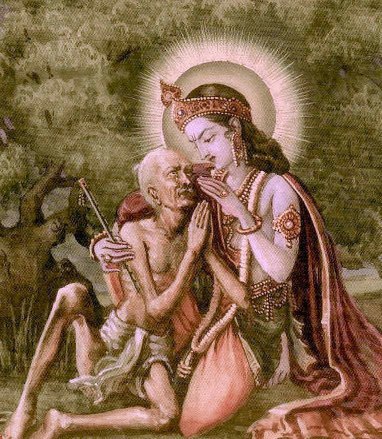
In the Srimad Bhagavatam [11:19:36] tolerance is defined:
Tolerance means patiently enduring unhappiness.
If someone can patiently endure the pain, suffering and unhappiness of the material world without getting angry, blaming Krishna, or feeling that life is unfair, and continues on with their devotional service, then their attitude is very pleasing to Krishna. Many people get angry in such situations, thinking, “Life is so unfair, why is God so unkind to me when I do so much for Him. He either doesn’t exist or He doesn’t love me,” etc. In this way, their faith is tested and found to be lacking. But for one who tolerates the pain and suffering of the material world, always feeling that he is being kindly treated and looked after by Krishna, spending his time humbly engaging in service to Krishna, the suffering of the material world will soon be over. Sometimes you’ll hear a devotee say “It’s Krishna’s mercy” when they experience a set-back or suffering. The reason for this is explained in the next verse.
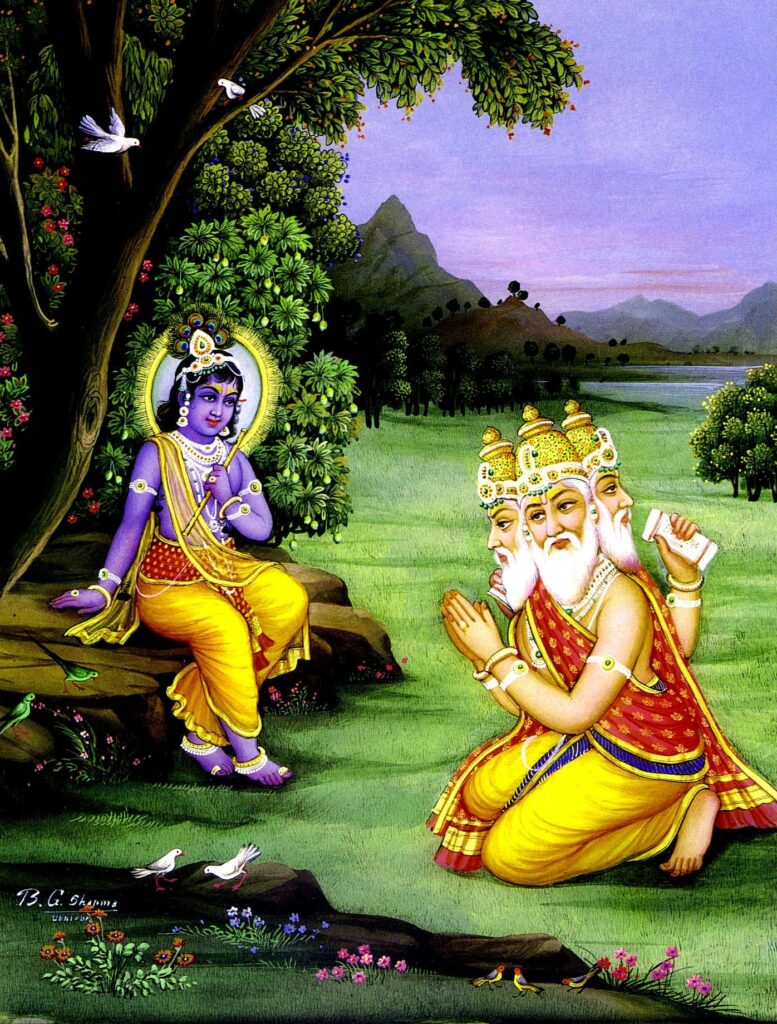
Lord Brahma prayed to Krishna:
My dear Lord, one who earnestly waits for You to bestow Your causeless mercy upon him, all the while patiently suffering the reactions of his past misdeeds and offering You respectful obeisances with his heart, words and body, is surely eligible for liberation, for it has become his rightful claim.
[Srimad Bhagavatam 10:14:8]
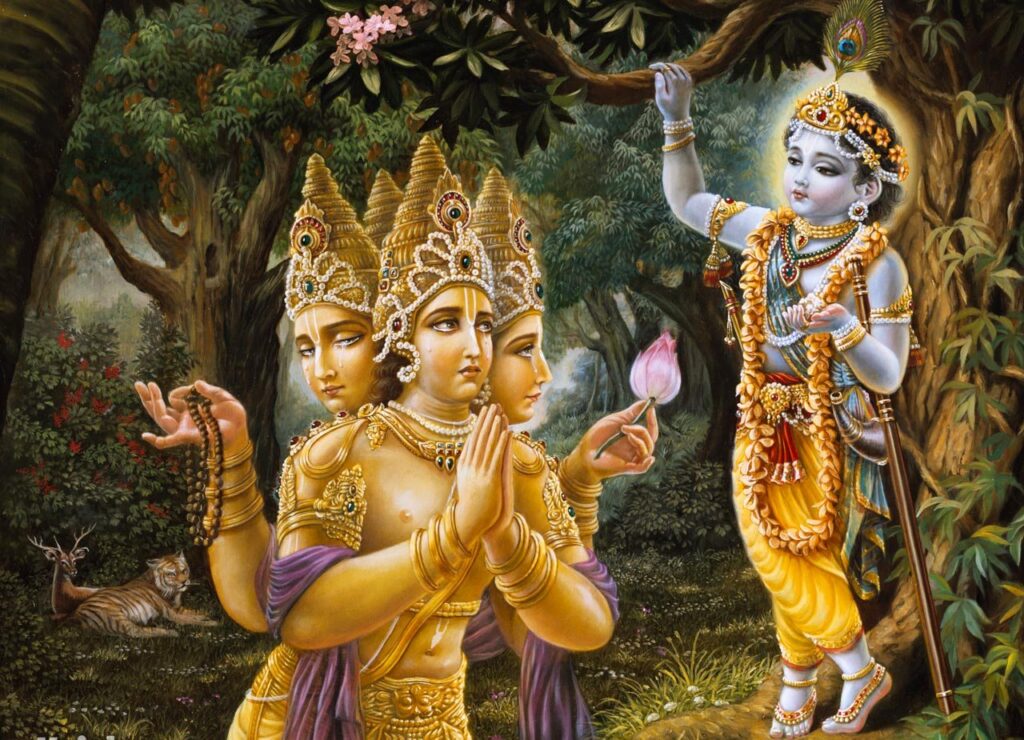
It is for this reason that Srila Bhaktivinoda has said:
Troubles encountered in Your service shall be the cause of great happiness, for in Your devotional service joy and sorrow are equally great riches. Both destroy the misery of ignorance.
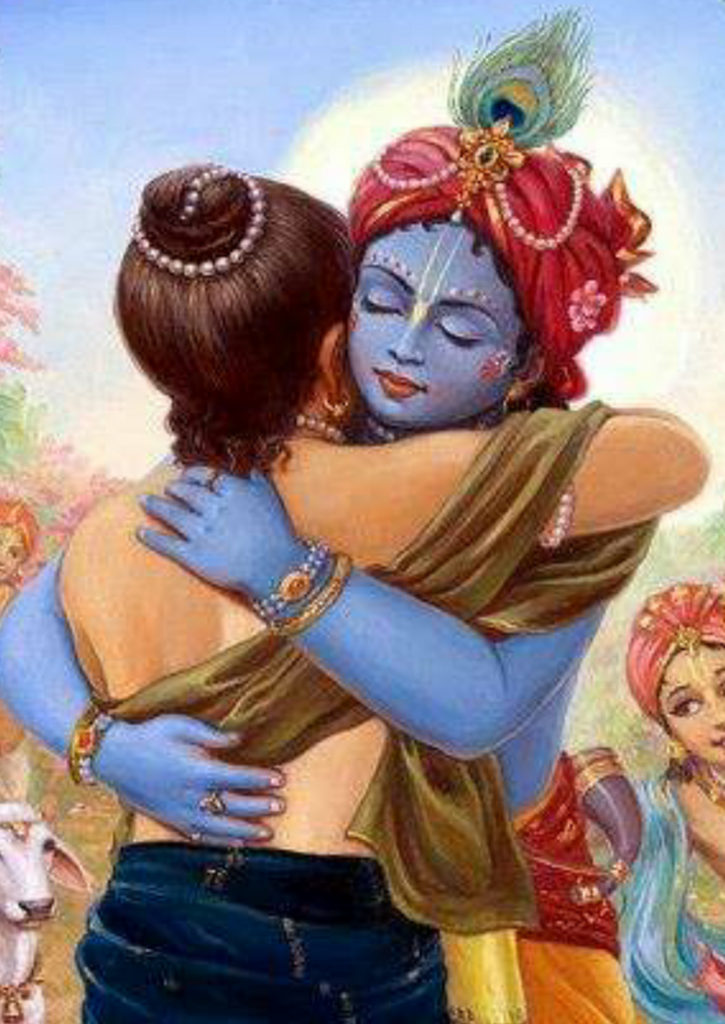


2 Comments
What a beautiful answer to what can seem like such a complex question. Namaste Kenarama das
Haribol, such a valuable read to help shed some light on such a complex question. Namaste Kenaram das